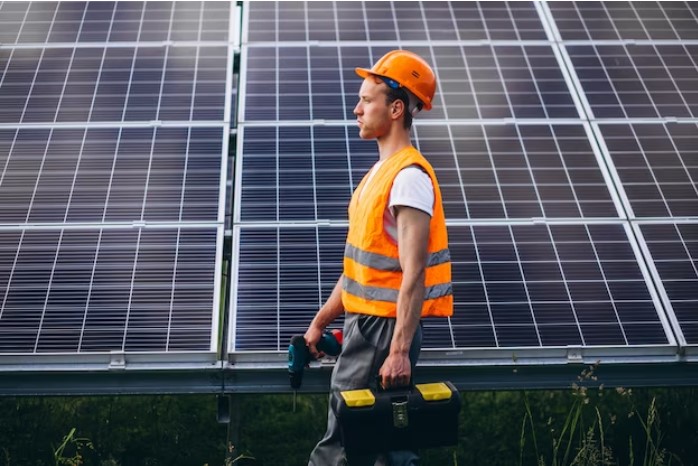In recent years, utilizing solar panels for home energy needs has shifted from a niche, eco-friendly choice to a mainstream and economically viable option. Solar panels have emerged as a key player in this transformative era as the world grapples with climate change and seeks sustainable energy sources. This article delves into the world of solar energy, focusing on its application in residential solar panels.
The Basics of Solar Panels for Home Use
Solar panels, or photovoltaic (PV) systems, convert sunlight into electricity. Typically installed on rooftops, these panels absorb photons from sunlight and generate an electric current. A home solar system usually comprises solar panels, an inverter, a battery (for storage), and a metering system. The generated electricity can be used directly, stored for later use, or fed back into the grid, often earning homeowners credit on their utility bills through net metering.
Why Homeowners Are Turning to Solar
- Environmental Benefits: Solar energy is clean, renewable, and abundant. Homeowners significantly reduce their carbon footprint by adopting solar panels, contributing to a greener planet. Solar energy doesn’t emit greenhouse gases; its sun source is inexhaustible at a human timescale.
- Economic Advantages: Although the initial installation cost of solar panels can be high, they offer long-term savings. Solar panels significantly reduce electricity bills, and in some cases, they can eliminate them. With rising energy costs, this aspect is increasingly appealing to homeowners.
- Energy Independence: Solar panels provide a degree of energy independence. In areas with frequent power outages, having a solar system with battery storage means an uninterrupted power supply. Additionally, reliance on the grid reduces, protecting homeowners from fluctuating energy prices.
- Government Incentives: Many governments offer incentives for solar panel installation, such as tax credits, rebates, and grants. These incentives lower the initial financial barrier, making solar energy accessible to a broader audience.
- Increased Property Value: Homes equipped with solar energy systems often have higher property values and attract buyers more quickly. The prospect of lower utility costs makes these homes more appealing in the real estate market.
Considerations Before Installation
Before jumping into solar, homeowners should consider several factors:
- Roof Suitability: Not all roofs are ideal for solar panel installation. Factors such as roof material, angle, size, and shading must be considered. A south-facing roof with minimal shade is typically best for solar energy generation.
- Local Climate: While solar panels can generate electricity even on cloudy days, regions with higher sunlight exposure naturally yield more power. Understanding the local climate helps in estimating the system’s efficiency.
- Energy Needs: Homeowners should assess their energy consumption to determine the size of the solar system needed. Overestimating can lead to unnecessary costs, while underestimating can result in insufficient power generation.
- Budget and Financing: Understanding the budget and exploring financing options is crucial. Solar leasing and power purchase agreements (PPAs) are alternatives for those who prefer not to purchase the system outright.
- Maintenance and Durability: Solar panels require minimal maintenance, usually just occasional cleaning and checks by a professional. Most panels come with warranties, often lasting 20-25 years, ensuring long-term performance.
The Future of Home Solar Panels
Technological advancements continue to enhance solar panel efficiency and affordability. Innovations such as solar shingles and community solar gardens make solar energy more accessible. Integrating smart home technology with solar systems is also rising, allowing more efficient energy management.
Conclusion
Solar panels for home use are more than just an environmental statement; they are a practical and financially sound choice for many homeowners. As technology advances and the world moves towards cleaner energy, solar panels will likely become an even more integral part of our energy landscape. With careful consideration and planning, harnessing the sun’s power can be a rewarding investment for a sustainable future.









